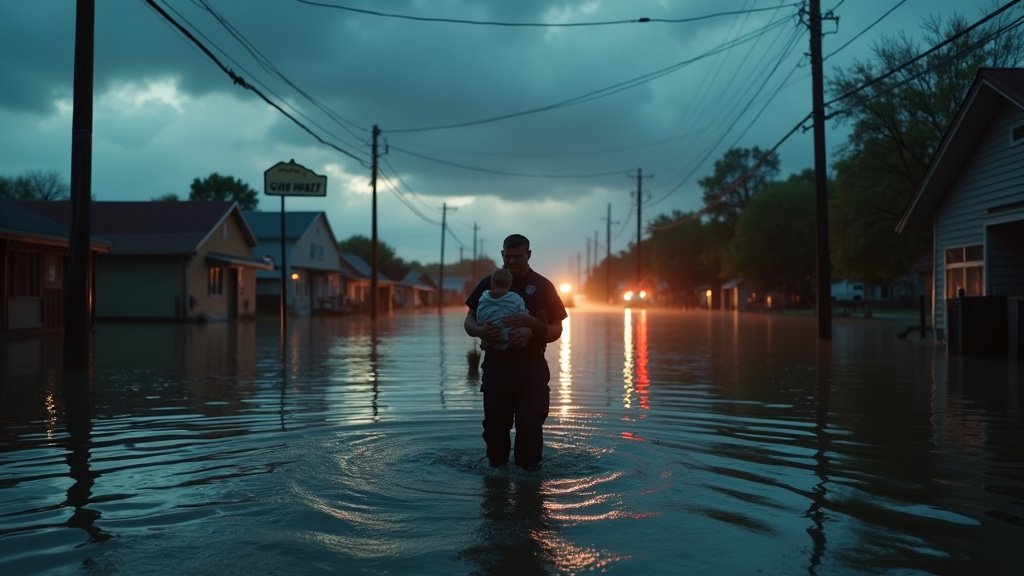Texas Flood Exposes Weaknesses in Local Emergency Response
The aftermath of a recent flood in Texas has brought into sharp focus critical shortcomings in the state’s local emergency preparedness protocols. A recent legislative hearing, designed to assess the response to the flooding, has underscored the urgent need for significant improvements in training, communication, and overall coordination. The Dallas Morning News Editorial Board offered an in-depth perspective on the hearing and the broader implications for community safety.
Deficiencies Highlighted at Hearing
The legislative hearing served as a crucial platform to examine the effectiveness of local emergency response mechanisms. Testimony and evidence presented during the hearing painted a picture of a system struggling to cope with the demands of a major disaster. The primary areas of concern centered around the proficiency of first responders and the efficiency of communication channels. The hearing brought to light critical gaps in training, particularly regarding the implementation of updated emergency protocols. These protocols are essential for ensuring swift and effective responses to future crises.
The Need for Enhanced Training
One of the key takeaways from the hearing was the pressing need for more robust and comprehensive training programs for emergency personnel. Witnesses emphasized that first responders, while dedicated, were often hampered by a lack of adequate training in key areas, leading to delays and inefficiencies during the flood response. This deficiency extended to the application of new technologies and strategies that are crucial for navigating complex emergency scenarios. Increased investment in specialized training could equip emergency personnel with the skills and knowledge necessary to handle future events with greater confidence and competence. Regular drills and simulations designed to replicate real-world scenarios were identified as essential components of an improved training regimen.
Communication Failures Exacerbate Crisis
Another significant area of concern highlighted at the hearing was the failure of existing communication strategies. The hearing revealed that outdated contact information and inadequate communication channels hindered the rapid dissemination of critical information to both first responders and affected residents. The ability to communicate swiftly and accurately during a flood is absolutely critical, enabling residents to take necessary precautions and emergency services to coordinate effectively. Furthermore, outdated communication systems led to delays and confusion, hampering rescue efforts and the distribution of essential resources. Upgrading these systems, including the implementation of redundant communication networks, would greatly enhance response capabilities.
Improving Coordination Strategies
The legislative hearing also emphasized the necessity of improving coordination among various agencies involved in emergency response. The flood response was hampered by a lack of clear lines of communication and well-defined protocols for collaboration between different levels of government and various emergency service providers. Establishing a unified command structure and conducting regular joint exercises could help to foster better coordination and improve the effectiveness of future response efforts. These protocols must be clearly outlined and rigorously practiced to ensure seamless collaboration when disaster strikes.
Dallas Morning News Editorial Board Weighs In
The Dallas Morning News Editorial Board provided a critical examination of the hearing findings, adding its voice to the call for urgent action. The Editorial Board’s insights provided a valuable perspective on the significance of the identified deficiencies and the necessary steps to address them. Their analysis underscored the importance of investing in comprehensive emergency preparedness strategies to protect the lives and property of Texans. The Editorial Board echoed the concerns of witnesses and emphasized the need for immediate action, stressing the human cost of inadequate preparedness.
Mitigating Future Flood Impacts
Ultimately, the lessons learned from the Texas flood, as examined in the legislative hearing, point to the need for a significant overhaul of local emergency preparedness strategies. By addressing the shortcomings in training, communication, and coordination, the state can significantly enhance its ability to mitigate the impacts of future flooding events. This includes not only improving response capabilities but also investing in proactive measures such as updated flood maps, improved infrastructure, and community education programs. The goal is to create a more resilient and responsive system that can protect Texans during times of crisis. The legislative hearing served as a powerful reminder that preparedness is not merely a matter of policy, but a matter of life and death.






